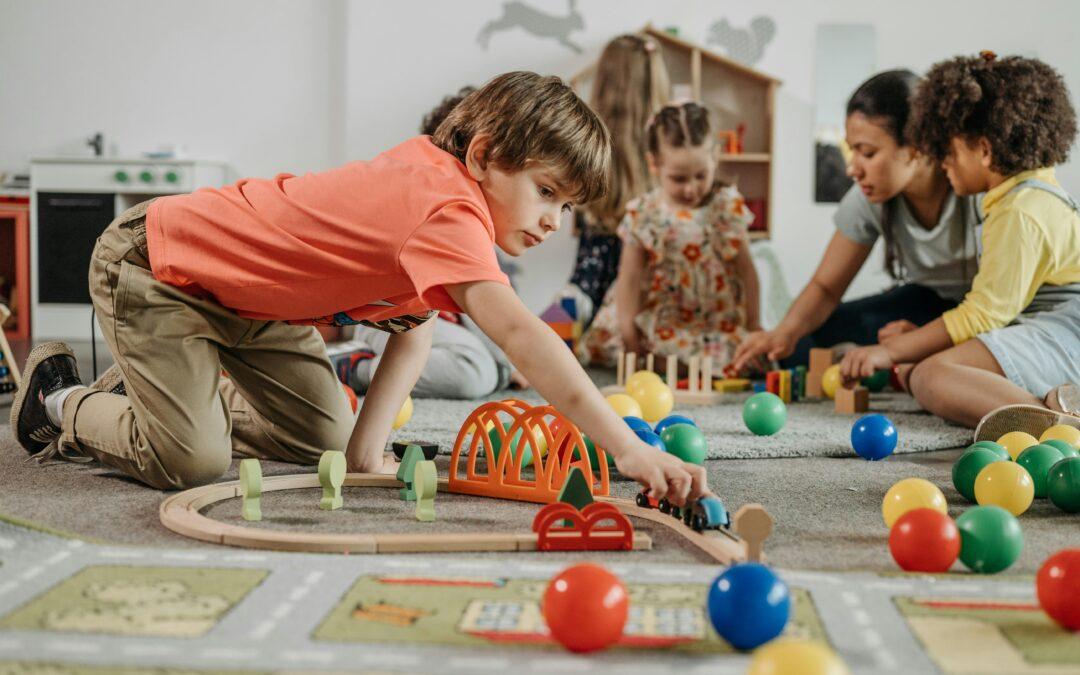
Classroom Sensory Supports for Neurodiverse Students
Having a supportive and inclusive learning environment is an integral part of educating neurodiverse individuals. It is important because it not only affects the way the children learn, but it also affects their overall wellbeing. Firstly, recognizing the need to support individuals on the spectrum by recognizing their unique sensory needs is part of the journey towards building an inclusive classroom.
Now there are many ways you can support the diverse needs of your students on the spectrum in your classroom, because every child has unique sensory needs. These sensory needs range from sound, touch, movement, and more. So, it is important to recognize and address them however you can. Let’s dive into the various ways you can support children with Autism or ADHD in your school!
Hypo vs Hyper Sensitivities
Before building sensory supports in the classroom it is important to have a clear understanding of students’ sensory profiles. It takes time and careful observation to understand the unique sensory needs of each student.
Some students may be hyposensitive – this means they are not getting enough sensory input from their environment. Some people refer to the students as “sensory seekers”. You might notice hyposensitive students jumping, spinning, fidgeting, or eating spicy foods.
Other students may be hypersensitive. These students are getting too much sensory input from their environment and can feel overwhelmed or overstimulated easily. You may find hypersensitive students covering their ears, seeking quiet/dark areas of the classrooms, or preferring only the tastes and textures of a limited number of foods.
Students may be hypersensitive in one area (like touch) and hyposensitive in another (like smell). That’s why building a full understanding of each child’s unique sensory profile is critical before building supports.
Auditory Support
Many neurodiverse individuals have sound sensitivity, and this can be triggered in a classroom with lots of activities. The excessive noise can overwhelm your neurodiverse students, one way you can support them is to make provision for noise cancelling headphones, or a quiet corner where they can go to escape from the noise.
They can also perform tasks in the quiet corner when a sensory overload happens. Another way to easily support your ADHD or autistic students in the classroom is to allow access to music. Soft and gentle music or white noise provide a calming effect on some neurodiverse individuals. These simple support measures go a long way in helping them improve their auditory skills.
Movement Support
Some neurodiverse students may need to move regularly to reduce anxiety and stay calm. One thing you can do to help is to incorporate movement breaks into your daily routine. These can be stretches, yoga, low jumps, short walks around the classroom, and the like. This can help the students release pent up stress and energy.
Another thing you can consider is flexible seating arrangements, to allow them to move from one position to the other, or stand and take lessons when they want to, this helps to improve their focus.
Multisensory Teaching Techniques
Multisensory teaching techniques combine different teaching methods to carry everyone along regardless of their sensory sensitivities. You can combine hands-on activities, visual aids, and verbal instructions to enhance the entire teaching and learning experience for neurodiverse students. As a teacher, you can employ tactile learning, interactive teaching techniques, and modern technologies to engage your students with different sensory sensitivities.
Every teacher or school should support the sensory needs of students with different sensory needs as it is essential for their success in the classroom. It is also a clear indication of how much you value inclusivity and are willing to contribute to helping neurodiverse students thrive. Schools in Chicago need to embrace these supports and enhance the learning process for neurodiverse students.
At City Elementary, we support neurodiverse children and inspire them to live life to the fullest. Our passionate teachers make learning a fun activity, not a task to avoid. We have so many teaching and learning strategies in place to support the unique needs of our students. Looking for a neurodiverse school in Chicago? We might be just what you need! Contact us today for information about admissions.


